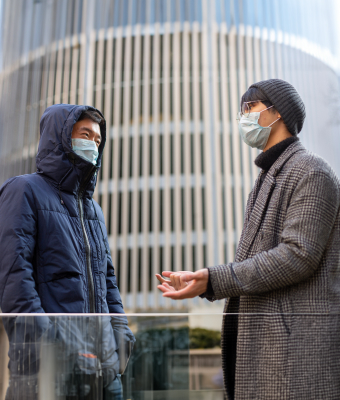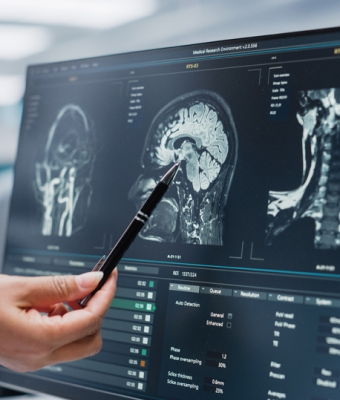The never COVID cohort
Although an alarmingly large number of people have been exposed to Sars-CoV-2, not everyone got infected. These people are categorized as the never COVID cohort. It has come as a surprise and an exciting research subject among scientists and doctors. A lot of research is being done on why few people (who have never been vaccinated) have never contracted COVID-19. It is a more common occurrence than one might think.
The United States of America reports more than 80 million coronavirus cases, possibly a significant undercount. It is estimated that more than half of the Americans have yet to get the coronavirus.1
What Could Be Behind ‘Never COVID’
We all know people who mixed closely with the infected people, whether in families, offices, public transport, social gatherings, etc. but did not get infected. Of course, mitigation measures like maintaining social distancing, wearing N95 masks, and getting vaccination timely worked well. But there are various other reasons behind the ‘Never COVID cohort.’
- T-cells2
Studies reveal that people previously exposed to infections from the common cold and other coronaviruses develop antibodies and memory immune cells that recognize the virus. These could be cross-reactive memory T-cells. These T-cells could protect against COVID-19. Therefore, these T-cells induced by common cold coronaviruses play a protective role against SARS-CoV-2 infection.
- Genetics
Various studies have revealed interesting associations between certain genetic variants and people’s vulnerability to communicable diseases such as HIV, the flu, and tuberculosis. This made researchers wonder whether such a variant could exist for COVID-19. In Oct 2021, a research article (3) published in the Nature focused on couples in which one person got sick while the other didn’t. It was found that the various immune systems respond differently to whether or not one gets a symptomatic/asymptomatic disease.
HLA (human leukocyte antigen) is the key gene that controls our immune system. It can impact the way one’s body responds to COVID. Some HLA types experience a symptomatic infection, while some HLA types don’t. For example, HLA-DRB1*1302 are significantly more likely to have a symptomatic infection4
False registration under the ‘Never COVID’
One cannot rule out the fact that a lot of people who contracted COVID-19 were also asymptomatic. And since there were no evident symptoms of the infection, many people did not get themselves tested. These people self-declared themselves as not-infected and were falsely registered under the never COVID cohort.
What Should People Who Haven’t Gotten COVID-19 Do?
The research determining why some people do not get COVID-19 while others do still very much underway. It is advisable not to rely on any of the believed hypotheses for protection.
People should continue to take protective measures and not be overconfident that the pandemic is over.
Conclusion
It can be said that prior exposure to the common cold and other coronaviruses and genetic differences play a significant role in determining whether or not one might get COVID.
In an interview, Jagdish Khubchandani, a professor of public health at New Mexico State University stated, “The virus is like a key and a lock, so if you have a key and a lock, then you have a match. If the key is not perfectly fitted to the lock, you may still be able to attach, but it will not be as efficient as an effective match.”
It has to be understood that just because a person hasn’t contracted the infection so far and has made it till this point, they can never get infectious in the future. After all, the innumerable exposure encounters shrink to one hitting chance. So, anyone who hasn’t gotten it yet is still very much at the risk of getting it.
The ones who haven’t yet gotten the coronavirus should continue the mitigation measures that have been proven to work effectively. Even when the pandemic is not at its peak, we must take conscious steps and act responsibly for our safety and health.
References
- Covid Data Tracker available at: https://covid.cdc.gov/covid-data-tracker/#national-lab (Accessed: 31 May, 2022)
- Kundu R, Narean JS, Wang L, Fenn J, Pillay T, Fernandez ND, Conibear E, Koycheva A, Davies M, Tolosa-Wright M, Hakki S. Cross-reactive memory T cells associate with protection against SARS-CoV-2 infection in COVID-19 contacts. Nature Communications. 2022 Jan 10;13(1):1-8.
- Mallapaty S. The search for people who never get COVID. Nature. 2021;599(7884):191-.
- HLA-DRB1 major histocompatibility complex, class II, DR beta 1 [Homo sapiens (human)] – Gene – NCBI. Available at: https://www.ncbi.nlm.nih.gov/gene/3123






